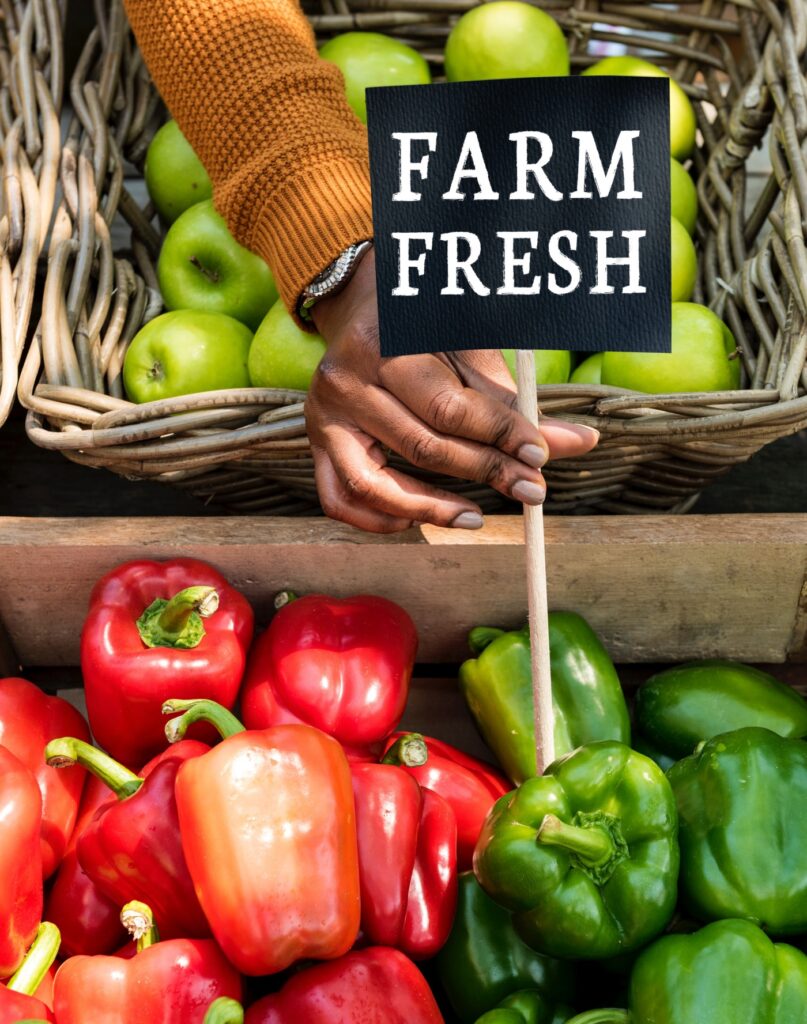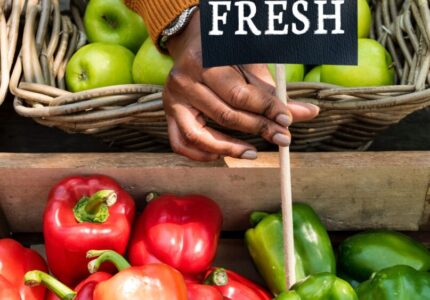3 min read
Written by Rachael Chong

I met Kara Harrison when she was the coordinator of the Highland-Stirling Community Market and she was connecting with us at the Hacienda Sarria Market Garden to purchase produce to sell on Wednesdays. Though she’s now working in another role in community development for the City of Kitchener, she agreed to sit down with me to chat about the history of the Highland-Stirling market, and what it was like to be involved in the project.
In 2008, this market began out of a need for greater access to “healthy local foods” in the Highland-Stirling neighbourhood. It was one of several neighbourhoods in the Region of Waterloo to receive funding and support from Waterloo Region Public Health to purchase food from local farmers, hire project coordinators, and purchase some of the necessary infrastructure to begin running a multi-week summer market. In the case of Highland-Stirling, it was one the few that continued on to become a yearly undertaking. As the years went on, the Region stepped back their support and the neighbourhood association — made up of community volunteers and only a couple part-time staff — has facilitated the project.
Harrison firmly maintains that a dedicated coordinator role is essential for making a market run. Behind the scenes, there is an incredible amount of work to do — managing inventory, working with volunteers, procuring the food, negotiating with farmers, researching city-by-laws, and marketing are just a few of the many tasks involved. She warns me (as I’m idealistically dreaming that this is something I want to start up in my spare time) that it’s a lot of work.
Another suggestion she has for anyone interested in running a neighbourhood market is to carefully consider the goals of the market. The goal of the Highland-Stirling market is cost-recovery. Its goal is not to gain a profit, but rather to provide access to locally-grown or made fresh food and preserves, as well as to provide education to the community about the origin of the food.
For Kara, it was a joy to visit local farmers, develop relationships with them, and be able to share what she learned with the volunteers and customers every week. The organizers have also made a conscious decision not to subsidize the cost of food in order to honour the work that farmers put into their products. At times, it is necessary to explain the costs of food to customers who may expect the prices to be cheaper when it is grown locally. Items are usually sold at-cost, with some minimal mark-up to cover losses. This decision reflects the group’s goals for this market — but another market may choose to subsidize costs, especially recognizing that food costs can be burdensome to people living on low incomes.
Positive neighbourhood response is evident from a growing resource table with information about the farmers and seasonal foods, and from a highly dedicated group of volunteers and customers — some of whom have been coming to the market since its beginnings.
The Highland-Stirling Community Market can serve as a model for “localized pop-up neighbourhood markets” that respond to a need for food access. It runs every Wednesday from 10am-1:30pm from June through August out of the Mill-Courtland Community Centre.
Just as in 2006, Waterloo Region’s Public Health department’s Neighbourhood Market Initiative spurred the development of projects like the Highland-Stirling Community Market, it seems there continues to be interest in neighbourhood markets. A decade later, in 2016, the City of Kitchener Neighbourhood Development Office’s “Love My Hood” initiative has led to the offering of a “Neighbourhood Market Kit.” While the motivations for neighbourhood markets in 2006–2008 centered around food access, the conversation seemed to evolve to be more about generating community identity.
Stay tuned for part 3 of Rachael’s series on neighbouthood markets in Waterloo Region.
Links:
Erin Nelson (2011). “Waterloo Region Neighbourhood Market Initiative” Initiative. http://nourishingontario.ca/waterloo-markets/
City of Kitchener.

